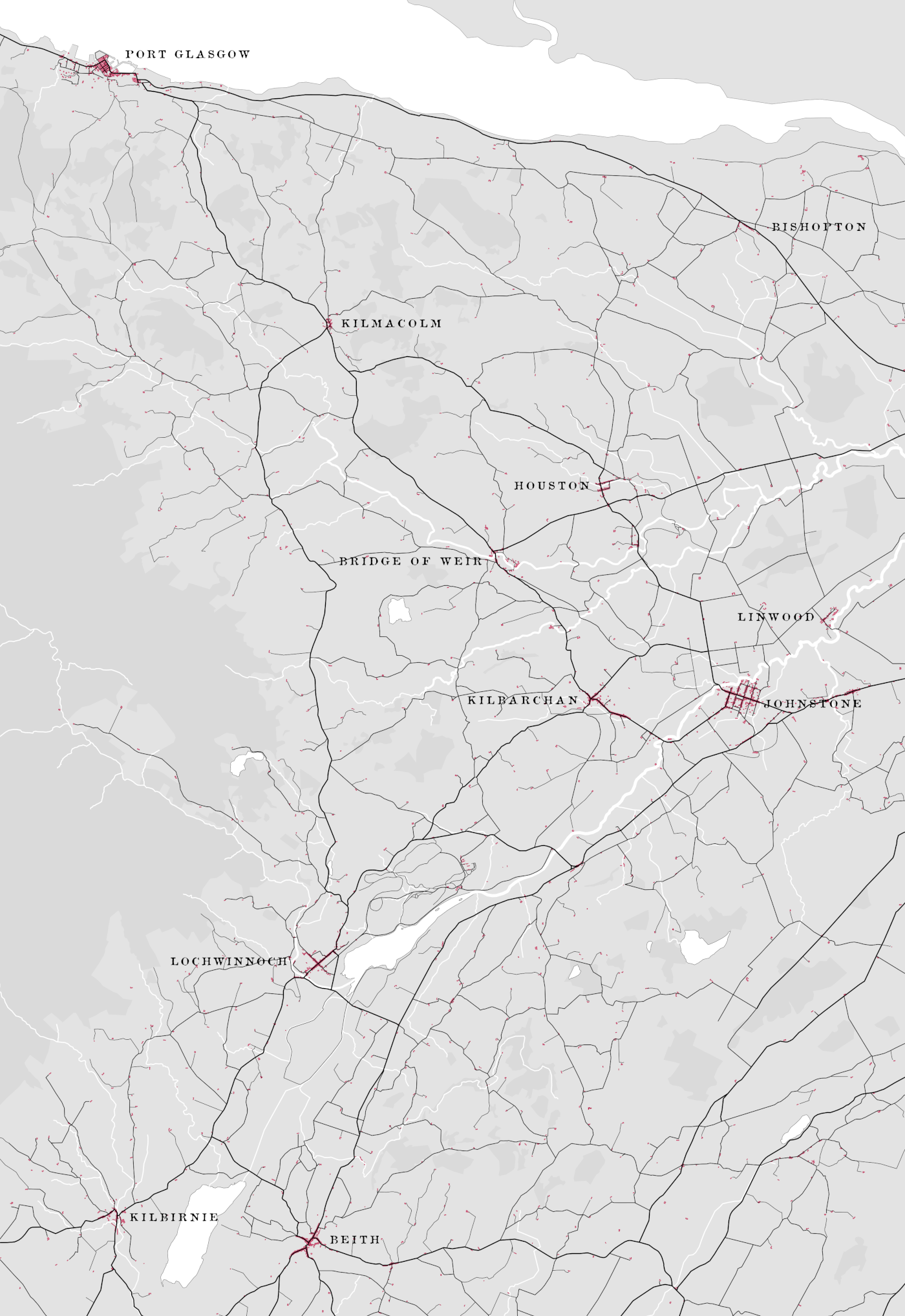Cairn of Lochwinnoch Matters;

I began to collect my notes of old matters about 1826 in rough volumes. I called them Cairns of Lochwinnoch Matters, as rude and confused Heaps of rough stones. [...] I have made up a sort of General Index [...] perchance some stray and curious enquirer of auld stories, after my death, may easily acquire some information. [...] But a question sometimes fashes me, what will become of my amusement for 20 years [...] to what other Person, may I bequeath the care of my “bulky mass”.
Andrew Crawfurd, 1846.
The Cairn of Lochwinnoch is a remarkable collection of 45 volumes of miscellaneous transcriptions and research notes left to posterity by Andrew Crawfurd [1786-1854]: a retired medical practitioner turned antiquarian who was born and lived for much of his life at Johnshill Cottage in Lochwinnoch, Renfrewshire.
Despite his own concerns, Crawfurd's Cairn has proven to be a resource for generations of researchers. Following his death surviving relations donated the “bulky mass”, in its entirety, to Paisley Library. Today the originals are held at the Renfrewshire Heritage Centre, while digital reproductions can be found freely available online.
Almost inveitably for such a large body of work, the Cairn encompasses a range of subjects. Crawfurd's primary passion, however, was for his native parish of Lochwinnoch. And among the most remarkable items in his collection are his “pedigrees” or genealogical accounts of several hundred local families, including “many bonnetted Lairds and small Heritors, never hoisted up into a printed Book”.
While the reliability of Crawfurd's work, like that of other genealogists of the time, must be treated by modern historians with appropriate levels of caution, Crawfurd was a serious researcher. While the underlying sources of his information are not always visible, it is clear he compiled his pedigrees by using a combination of documentary analysis and oral testimony. And from his accompanying notes we can see that he sought to cross verify his information.
Of considerable advantage to Crawfurd was the fact that he had access to a number of documents which are not available to modern historians. As a trusted and notable expert of antiquarian subjects, a large number of the neighbouring landowners of the time placed their family papers in his hands. These documents were recognised by him as the “foundation” of his work.
Some of the local men and women who contributed to the Cairn:
Patrick Wilson,
portioner of Johnshill
James Cochran,
(nicknamed Score-holes) fewar below the Kirkyard
James Brodie
Old John Kirkwood,
at the Millhouse
Old John Storie
Old Mrs Steven,
Port Glasgow
Old Robert Brodie,
(alias Pretty),
late of Knockbartnock
Mary Nimmo,
or Mrs Crawfurd
"The young merchant"
viz William Orr
"Old Auchinhane"
viz James Orr
Mrs Speirs,
of the Hole
Agnes Blackburn
Jean Allan
or Mrs Blackburn
James Balloch senior
mason
Jennie Tarbat
at Bridesmill
Old Elizabeth Aitken,
the Pirner's widow
Old Janet Armour
or Mrs Jamieson
Mrs Crawfurd
of Johnshill
Peggy Gemmill
or Mrs MacLauchlane
Mr John Hunter,
cabinet maker in Paisley
Janet Speir
or Mrs Jamieson
Jean Erskine
the bastard daughter of Isobel Blackburn
Old Girzie Smith
Old Margaret Ewin
at the Beltrees
John Ewin
of the Briglands
Robert Ritchie
Miss Jean Arthur
daughter of Mary Fulton
David Barbour
weaver Houston
John Kirkwood
lately of the Brigend
James Jamieson
Spinning master Old Mill
Robert Barbour
the elder
Old Humphray Barbour
Betty Stachers
or Mrs McAllum
George Glassford,
gamekeeper at Castlesemple
Jean Barbour
or Widow McLure
Daniel Stevenson
Janet Fulton
or Mrs Anderson
Mary Swan
William Sutherland
Mary Crawfurd
at the Factory Close
Allan Pinkerton
of Mossend
Mary Crawfurd
James Clerk
of the Burnside
John Barbour
at the East-end
Wm Barbour
of Cloke
Peggie Cowan
James Clark
of the Burnfit
Lady Milliken
or Mrs Napier
Isobel Robison

Map showing the area of primary coverage in The Cairn.
